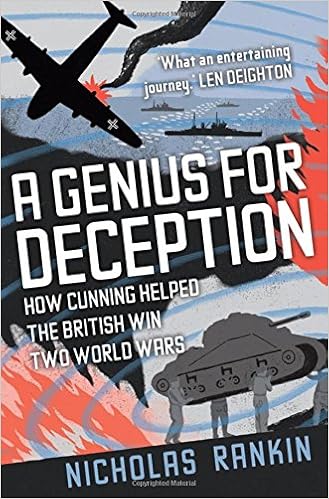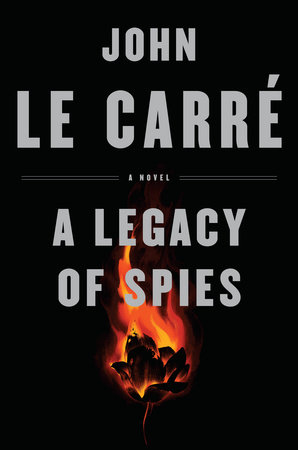I have not heard the recordings but my first reaction was: Not possible. Not possible turn my favorite of the books, Tinker, Tailor, Soldier, Spy, into a radio drama and make it work.
I know people who read that book cover to cover and couldn't follow the plot. I know people who have watched the whole six hour TV mini-series with Alec Guinness and were baffled by it.
For an earlier blog I wrote up the endings of twenty great mysteries (not identifying which books they came from, fiend that I am). I spend twice as much space explaining TTSS as any of the others and still received a complaint that I had it wrong.

The novel's story is so twisty, so reverse-logic, that the idea of trying making it clear in a radio performance strikes me as insane. If anyone has listened to the recording, please let me know what you think.
Here is one of the reasons the plot is hard to grasp. Characters A and B are in effect asking: "Given that the situation is X why are Characters C and D doing what they do?" The answer is: Characters C and D think the situation is Y.
(And by the way, the pretty-good movie version starring Gary Oldman, blew this part of the plot entirely, apparently just to put in one shocking scene.)
My point is that to follow this part of the plot requires a leap of empathy, which no one in the book but Smiley is able to make, and a lot of readers have trouble with it, too.
I don’t mean sympathy, the ability to feel what someone else is feeling. I mean the scientific sense of empathy: the ability to see things from the other person's point of view.
Decades ago a scientist named Daniel Povinelli taught chimpanzees to do a task for a reward. Then the chimps saw a human doing a second related task. Finally the chimps had to copy what the humans did. In other words, the beasties' thinking process had to go something like this: "The human did a certain thing at the table and we both got fig bars. Now the tables are turned (literally) and I have to do that same thing to earn us bars."
Which turned out to be no problem for most of the chimps to figure out. But when the same experiment was tried with monkeys, well, it was like trying to teach them differential calculus on a roller coaster. In spite of the old adage "monkey see, monkey do," those primates could not make the empathic leap.
It is easy to assume empathy is a good thing, but that's an oversimplification. For example, it is an essential tool for con artists. They have to see what the mark is seeing and know what the mark wants. Science fiction writer Harry Turtledove wrote a story called "Bluff" in which an alien world's civilization is overturned when one character learns poker and discovers the concept of lying.
 Other fields rely on empathy as well. I just read a terrific book by Nicholas Rankin called A Genius For Deception, about British trickery during the two World Wars. One example is camouflage which, of course, depends in knowing how the object you are trying to disguise will look to an enemy soldier, sailor, or pilot.
Other fields rely on empathy as well. I just read a terrific book by Nicholas Rankin called A Genius For Deception, about British trickery during the two World Wars. One example is camouflage which, of course, depends in knowing how the object you are trying to disguise will look to an enemy soldier, sailor, or pilot.But it is just as true in intelligence battles. One of the frustrations of the British spies during WWII was that the Japanese intelligence units were so incompetent they would miss the false information that had been cunningly prepared for them. In other words, you can't get someone into your trap if they don't notice the bait.
Which, I suppose, brings us back to the cunning of George Smiley. If you haven't encountered Tinker, Tailor, Soldier, Spy, I recommend it. There are plenty of versions to choose from.
Addendum: After I wrote this I received an advance reader copy of John le Carré's new novel, officially published yesterday. A Legacy of Spies is being plugged as a new Smiley novel, but it appears that once again the cunning old fox manages to stay on the side lines. The main character is Peter Guillam, Smiley's protege, who is called out of retirement to explain some of the master's cases to a post-Cold War generation of spies. I'm reading it now, and so far, it's good.



.png)

I'm a big fan of Tinker Tailor in both its print and TV incarnations. Of course, having Alec Guinness in the lead didn't hurt at all.
ReplyDeleteRob, your lines, "One of the frustrations of the British spies during WWII was that the Japanese intelligence units were so incompetent they would miss the false information that had been cunningly prepared for them. In other words, you can't get someone into your trap if they don't notice the bait." made me laugh so hard I spilled my tea.
ReplyDeleteI love TTSS; I'm also a huge fan of The Spy Who Came In From the Cold, which was my first spy movie ever, and made me fall in love with both Richard Burton and Cold War stories.
Empathy is the trickiest concept in the world. Personally, I don't think con artists actually have empathy. Instead, I think that, like most sociopaths, they don't "get it" at all when it comes to what the rest of us are actually feeling. BUT - they have honed the ability to analyze people's reaction to the bait to the extreme, which makes them very, very effective. And dangerous. (see Cathy in "East of Eden")
Great post here, Rob. It's been years since I've read Tinker Tailor but this makes me want to dive in again. And good points generally about empathy and all too--fascinating!
ReplyDeleteGreat post, Rob! I think I have all JLC's books, and I love 'em.
ReplyDeleteEve, I watched The Spy Who Came in From the Cold again two nights ago. Richard Burton's face, throughout that movie, is pure anguish. What a great actor, and Oskar Werner too.
My first exposure to TTSS was the television version with Gary Oldman and Tom Hardy. I've read some damning reviews of it. What's your take? Thanks.
ReplyDeleteSorry about your tea, Eve.
ReplyDeleteI only saw the Burton movie a few years ago, although I read the book decades ago. Both are excellent.
Keenan, the Oldman version was a movie; the Guinness version was a TV mini-series. I thought Oldman's movie was pretty good taken by itself, but it did some damage to the book's plot. Not only did they simply skip the empathy-issue I was discussing, but they throw in a line spoken by Karla which, if you think about it, throws the entire plot into a cocked hat, to use a very old and odd expression. (To be clear, the problem isn't that Karla speaks, but what he says.)
Another issue is that since Roy Bland is virtually a non-entity in the movie you lose the fact that the four members of the Magic Circle represent (or at least come from) four elements of British society: bureaucrats, aristocrats, working class, and immigrants.
One more problem: Jim's relationship with a certain character was not so clear in the movie. Clear enough if you have read the book, but it confused others.
On the plus side, two things I thought were very well done in the movie: As soon as Smiley retires he gets new glasses. This obviously emphasizes his role as observer, but it also lets the film viewer immediately (even unconsciously) recognize flashbacks when they occur (because George is wearing the OLD specs).
Second excellent thing: Guillam (Cumberbatch) stealing the file from the Registry. Doing it in an open space was much more suspenseful than doing it in a phone booth, as was done in the TV series and, I think, the book.
My next two blogs will be about Le Carre, unless something comes up.